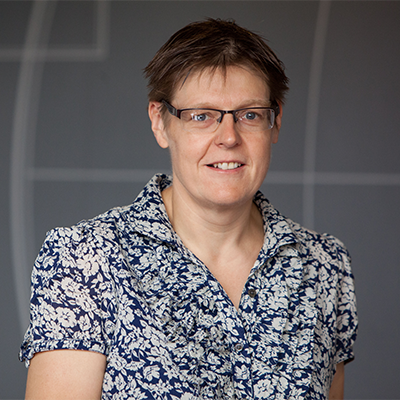Our support for research has helped to establish a vibrant community of stroke researchers in the UK. This continues to change the lives of those affected by stroke through high-quality research.
Stroke research receives a fraction of the funding relative to its devastating effects and in comparison to other life-changing conditions. However, by supporting talented researchers and cutting-edge ideas, working in partnership and facilitating knowledge sharing, we continue to raise the profile and increase funding for stroke research.
You can read about our research successes in the stories below.
Since 2007, specialist training in stroke has been available for doctors in the NHS. However, this wasn't always the case. Our funding for doctors to specialise in stroke bought talented healthcare professionals into stroke and for many, allowing them to get involved in stroke research.
For example, our funding for Dr David Werring in 2002 put him on the path to leading a successful programme of research at the University College London Institute of Neurology. His team works to understand bleeding in the brain related to stroke. He also continues to provide care to stroke patients in the hospital and the community. He told us: 'The Stroke Association - as our only dedicated stroke charity - is absolutely vital to the success of stroke research in the UK; at a personal level, their funding has enabled me to train as a research-active stroke neurologist, and to develop my own stroke research projects as a more senior researcher'

Similarly, our funding supported Dr Nikola Sprigg to build her expertise in stroke medicine. Right now, she is leading large, International stroke research trials at the University of Nottingham.
She spoke to us about the value of this funding to her work saying: 'I was able to visit specialist stroke clinics and gain experience in many different aspects of stroke care. These experiences have given me greater insight into the impact of stroke on patients' lives and helped me to understand how research can most benefit stroke patients.'
Our fellowship and lectureship funding schemes continue to support talented and passionate people to become the future leaders of stroke research.
Our charity has a relatively small amount of money to dedicate to research compared to other funders. In addition, in total, only 1.2% of public and charity spending goes to support research into stroke.
Our support for research still makes a big difference in the advancement of stroke treatment and care as we are strategic with where we spend. We do this in many ways including:
Supporting earlier research into new ideas that is essential for the launch of bigger research trials.
Working in partnership with other research funders to direct more money into stroke.
Supporting promising stroke researchers in the final steps to become leaders in their field and bring more money into stroke research.
Helping the exchange of brilliant ideas and new findings - for example in our role organising the UK Stroke Forum that brings together researchers, healthcare professionals and people affected by stroke every year.
Over 40% of our research spending is dedicated to stroke rehabilitation. Rehabilitation is an area of stroke research that looks at how those affected by stroke can overcome or adapt to changes caused by stroke and live their best life possible. This shows our commitment to research that can help people rebuild their lives after stroke.
Unfortunately, there has been limited success in this area of research. As each stroke is different, and stroke can cause a wide range of different problems, each person will have different requirements for their rehabilitation. That's why lots of good quality research in this area is even more important so we can find the right solutions for each person affected by stroke, sooner.
International leaders in stroke research have worked together to make new recommendations and better ways to do and record rehabilitation research. However, for them to make a difference, we need to commit to making changes to the way we do research. And we are doing just that. For example, we worked with other stroke support organisations around the world to voice our support for the new recommendations, and when researchers apply for our funding, we ask them to use the recommendations to plan their work.
